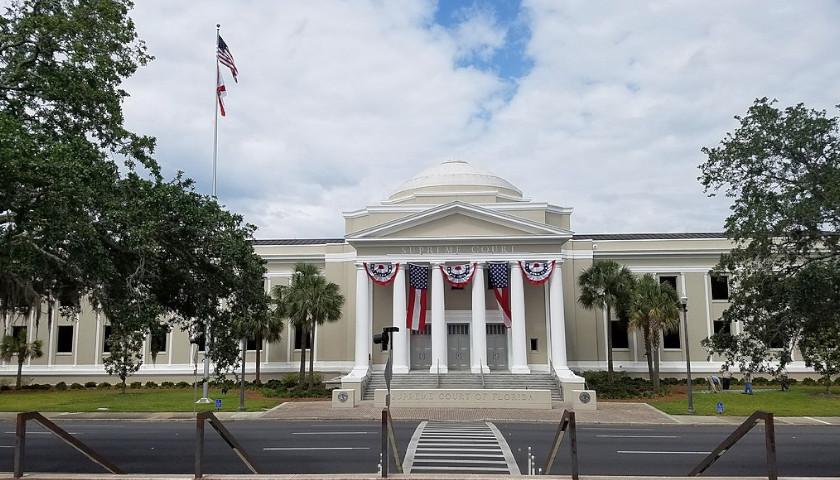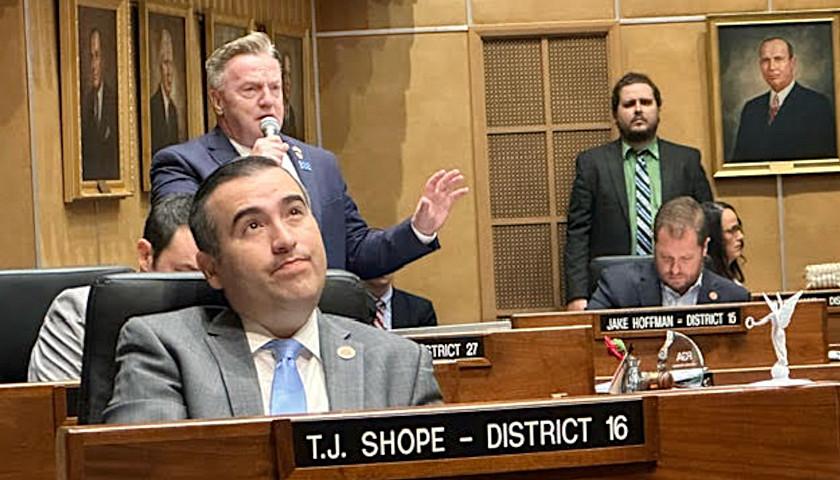by Jackie Mitchell
Floridians Protecting Freedom, sponsors of an initiative that would prohibit restrictions on abortions before fetal viability, have submitted 297,586 valid signatures as of Sept. 1, qualifying the proposal for a review by the state Supreme Court.
The initiative would provide that “no law shall prohibit, penalize, delay, or restrict abortion before viability or when necessary to protect the patient’s health, as determined by the patient’s health care provider.” The amendment would not change the state legislature’s ability to require parental notification for abortions sought by minors.
Proposed initiatives are reviewed by the state attorney general and state supreme court after proponents collect 25% of the total required signatures across the state (222,898 signatures) in each of one-half of the state’s congressional districts. After these preliminary signatures have been collected, the secretary of state must submit the proposal to the attorney general and the Financial Impact Estimating Conference. The attorney general is required to petition the Florida Supreme Court for an advisory opinion on the measure’s compliance with the single-subject rule, the appropriateness of the title and summary, and whether or not the measure “is facially valid under the United States Constitution.”
On Aug. 15, Floridians Protecting Freedom announced having collected over 600,000 raw signatures. To qualify for the 2024 ballot, 891,589 valid signatures are required. Florida also has a signature distribution requirement, which requires that signatures equaling at least 8% of the district-wide vote in the last presidential election be collected from at least half of the state’s 28 congressional districts. Signatures must be verified by Feb. 1. As election officials have 30 days to check signatures, signatures should be submitted at least one month before the verification deadline.
On April 13, 2023, Gov. Ron DeSantis signed Senate Bill 300, the Heartbeat Protection Act, which prohibited abortions once a fetal heartbeat is detectible, generally around six weeks into pregnancy. Prior to the law taking effect, abortions were allowed in Florida until 15 weeks into a pregnancy. Since the ballot initiative would amend the state constitution, it would supersede the statutory law.
In 2012, Florida voters rejected an amendment placed on the ballot by the state legislature that would have prohibited the state from spending public funds for abortions or health insurance that includes abortion coverage. Exceptions would have been made for (a) when a physician determined that physical conditions placed the woman at risk of death unless an abortion was performed; (b) when a pregnancy resulted from rape or incest; or (c) when federal law required the spending. The amendment would have also added language to the state Constitution stating that the state constitution could not be interpreted to “create broader rights to an abortion” than the U.S. Constitution.
In 2004, Florida voters approved a constitutional amendment referred by the Legislature that authorized the Legislature to enact a law requiring that the parents of a minor must be notified before the minor receives an abortion. It provides exceptions to parental notification through a judicial waiver process. It was approved with 65% of voters in favor and 35% opposed.
Since the 1970s, abortion-related policies have been a topic for statewide ballot measures across the U.S. From 1970 to November 2022, 53 abortion-related ballot measures appeared on the ballot in states across the U.S., and 43 (81%) of these had the support of organizations that described themselves as pro-life. Voters approved 11 (26%) and rejected 32 (74%) of these 43 ballot measures. The other 10 abortion-related ballot measures had the support of organizations that described themselves as pro-choice or pro-reproductive rights. Voters approved seven (70%) and rejected three (30%).
In 2022, there were six ballot measures addressing abortion — the most on record for a single year. Voters in three states — California, Michigan, and Vermont — approved measures providing for a right to reproductive freedom in their state constitutions. Voters in Kansas and Kentucky rejected measures that would have stated that nothing in the state constitution protects or secures a right to an abortion. Voters in Montana rejected a measure that would have required medical care for infants born alive at any stage of development.
On Nov. 7, Ohio voters will decide on a constitutional amendment that would create a state constitutional right to make reproductive decisions, including decisions about abortion.
On Nov. 5, 2024, voters in New York will decide on a constitutional amendment to prohibit the denial of rights to an individual based on their “pregnancy, pregnancy outcomes, and reproductive health care and autonomy,” along with other classes like ethnicity, disability, age, and sex. Additionally, voters in Maryland will decide on an amendment to establish a right to reproductive freedom, defined to include “decisions to prevent, continue, or end one’s own pregnancy.”
Ballot measures addressing abortion-related policies have been proposed in Arizona, Iowa, Missouri, Nebraska, Pennsylvania, and South Dakota.
– – –
Jackie Mitchell is a contributor to The Center Square.





